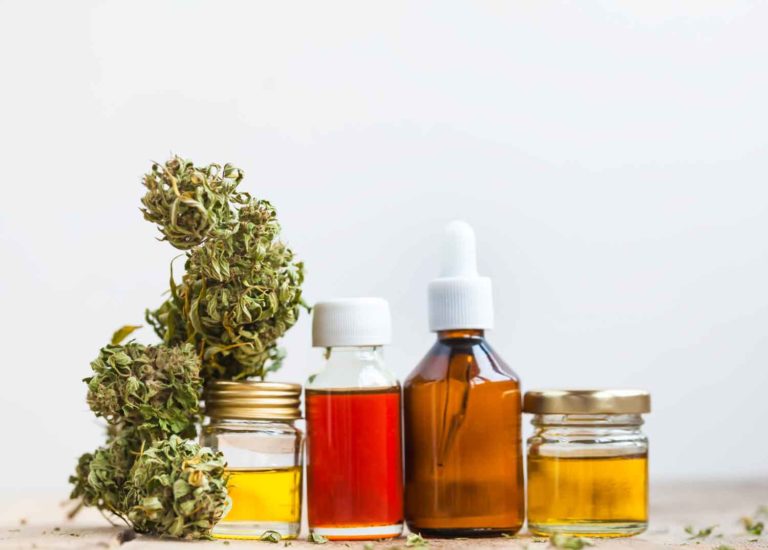
On October 15, the Texas Department of State Health Services (DSHS) changed their website statement on consumable hemp. Suddenly, they said Delta 8 is banned.
Previously, the state’s hemp program bill, HB 1325, was signed by Governor Greg Abbot, R, in 2019. The subsequent sales of Delta 8, has created a huge market in Texas. Additionally, this past summer, lawmakers’ proposed HB 3948 to update the hemp program in Texas as well as ban Delta 8. However, it failed to receive sufficient support in the legislative session. So hemp-based Delta-8 remained legal under the state’s law. Right?
According to Zachary Maxwell of Texas Hemp Growers, Delta 8 has created a market worth around $50 million and growing. So why is there now an agency-stated ban on Delta 8 after lawmakers left the state’s hemp laws unchanged? The most likely answer: cannabis companies and politics.
Cannabis Companies
Why would cannabis companies go out of their way to hinder hemp companies? Isn’t it the same plant? Generally yes, hemp is classified as cannabis plants containing no more than 0.3 percent Delta 9 in them. Any plants above 0.3 percent Delta 9 can’t be classified as hemp; therefore, they are all cannabis.
Under the 2018 Farm Bill, led by Republican lawmakers, all hemp containing no more than 0.3 percent Delta 9 is legal. No matter what. This includes isomers and other THC cannabinoids, like Delta 8. The bill is clear. There is no gray area. However, cannabis companies promote the idea that the hemp market, specifically Delta 8, operates in a “loophole.” However, with the Farm Bill specifically saying all other hemp THC products are legal and not a controlled substance, Delta 8 isn’t operating in a loophole.
As cannabis moves closer and closer towards legalization, cannabis companies are becoming louder and putting more pressure on lawmakers to get rid of hemp overall. They advocate, why legalize and regulate all of these different products, like Delta 8 and CBD, when Delta 9 cannabis itself could just be legalized? That would be less complicated. It seems this is what cannabis companies are trying to convince lawmakers of. In reality, it would stifle innovation of potentially beneficial new hemp-based products.
Ironically, hemp companies are rooting for cannabis companies. They want a legal market for both cannabinoids and cannabis. That way they can work together to offer products to people to varying degrees of intensity and intoxication. It’s unfortunate that greed appears to prevent the two sides from being allies in the push for common sense legalization measures.
Politics
One of the biggest confusing points in this whole Texas situation revolves around politics. Why was the communication from an agency instead of with the support of the Governor’s Office? And why would a Republican governor look to overrule a federal law led by Republicans in 2018? Well, maybe he didn’t. The DSHS appears to have made these changes to the law on their own, without consulting lawmakers. However, they have no regulatory authority over any controlled substances in the state. So far, the governor, the lieutenant governor, and high ranking lawmakers in Texas, haven’t made any comments on the new DSHS language.
Public Response
Several CBD and Delta 8 companies in Texas have had different responses to this supposed ban. Some companies immediately pulled Delta 8 stock to remain compliant with this ‘new law.’ Ojas CBD in Montgomery County, Texas, began their morning selling Delta 8 products. By the end of the day, Billy Franklin, the owner, pulled all Delta 8 stock. Even though it will definitely cut into his overall profit and affect his bottom line, he’s not willing to test the boundaries.
Other stores, like Lit Smoke & Vape in Allen, won’t stop selling Delta 8 until they are forced to. “It’s still on our shelves until it’s legally decided that it’s illegal,” commented a store manager to local news. “Those people [DSHS] don’t have any authority over the law. So until the law states that it’s illegal then, no, we will continue to sell it. They tried to ban CBD two years ago and they got sued and it fell through. So it’s going to happen again.”
For the general public, Delta 8 should remain legal in Texas, as it has been since the 2018 Farm Bill and HB 1325, which a republican governor signed.
Questions
It seems there are a lot of conversations happening behind the scenes, out of the public’s eye. Interestingly enough, when the Texas Delta 8 ban was originally announced, the biggest cannabis convention in the U.S. was taking place in Las Vegas. And curiously, similar announcements also came from California with roughly the same timing. Were cannabis companies pushing for a change in the narrative? Some speculate cannabis companies are in control in the background and pressuring lawmakers into banning hemp-based products in hopes of ensuring legal cannabis.
Future
It seems the smart thing to do is follow the big money. Some groups seem intent on making sure cannabis companies get paid first, even if they must stifle the science, innovation, and potential benefits hemp-based THC products, like Delta 8, can provide. As more information becomes available, we will update you with the latest.
Make sure to check back for more cannabis, hemp, and psychedelic related news.